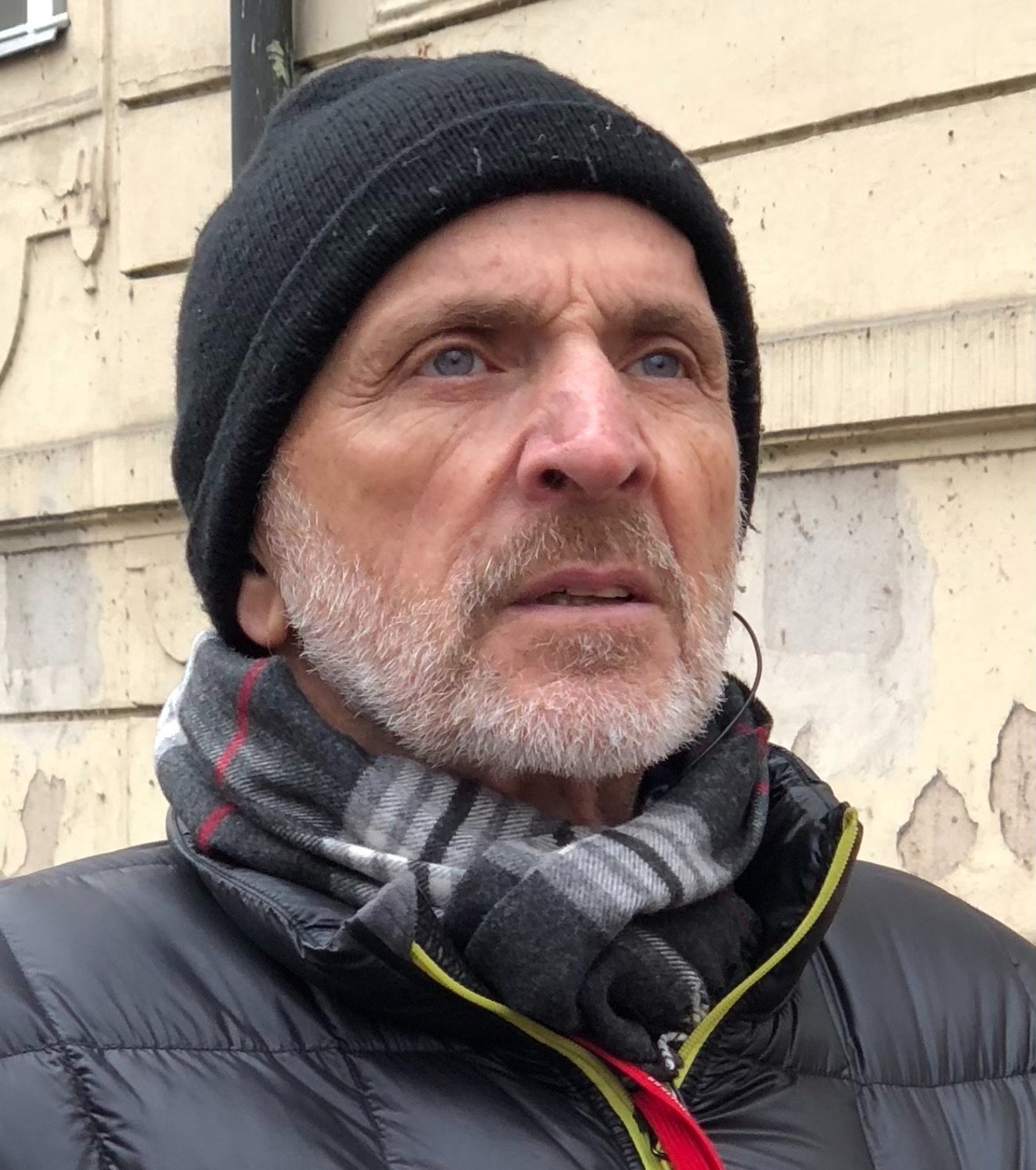Dr. Tom Mallouk has long been an integral part of the poetry community in the Pennsylvania and New Jersey regions sharing his poetry at readings and in journals. His work covers an intimate range of subjects including family, healing from trauma, and his view of the human spirit. He infuses his poetry with insights gained from his years as a psychotherapist, this perspective imbued with his unfailing belief in restoration and recovery. His generosity and support for the art of poetry is known and appreciated by many.
Tom has been a practicing psychotherapist for fifty years. For the past twelve, he has been transforming his interest in the healing possibilities of conversation and the spoken word into poetry. His poems have appeared in literary journals, including GW Review, The Pisgah Review, The Quercus Review, River Heron Review, US 1 Worksheets, The Schuylkill Valley Journal and The Sun. His chapbook Nantucket Revisited was published in May, 2013. A second chapbook The Write Metaphor will be coming out in June 2023, and a full-length volume titled Rupture, Repair and Redemption will follow in the fall. In addition to writing, Tom is an avid golfer and fisherman. He resides in Doylestown, PA with his wife Dr. Eileen Engle with whom he has raised two daughters, Kaitlin and Meghan.
RHR: Tell us about your role as Poet Laureate of Bucks County.
Tom Mallouk: I had no idea what it would feel like to be poet laureate. I tried for so many years and was runner up three times. All I knew was that I wanted to win but since I won, I have been surprised by my sense of duty to the poetry community. For this year, I represent poetry to and for Bucks County. My mission has been to both increase the audience for poetry and to promote the poets of Bucks County who I believe deserve a wider readership.
After vetting several possibilities, including posting poetry in the parks of Bucks County in prominent places on walking trails and park benches, I arrived at the idea of trying to find a local newspaper that would feature a poem on a regular basis in their publication. It turns out I have a connection with one of the members of the board of the Bucks County Herald. Marv Woodall, the board member to whom I had originally pitched the idea, stepped up and decided to use his charitable foundation to fund the first year of Poet’s Corner.
Since then I have applied for a grant from the Academy of American Poets to fund the second year of the project and provide seed money to help other local counties begin the process of getting poetry into local publications, thereby widening and deepening the audience for poetry. I have the fantasy of poems returning to the cultural landscape as part of everyday life. For that to happen, poetry needs to care about the audience and connecting with people at a level where they reside. For that reason, I’m a big fan of more accessible poetry that still maintains a high level of craft and nuance.
RHR: Does an idea for a poem haunt you or do you hunt for an idea?
Tom Mallouk: I feel as though poems reside just below the level of conscious thought. In that way, they are always with me but don’t get on the page until I turn my attention away from my conscious preoccupations and towards a less ordinary way of thinking. that requires me to suspend disbelief and put myself in a receptive frame of mind, a kind of gentle inquiring of what’s going on at that level of consciousness. I suppose you could say that I’m not exactly haunted by the poem and I don’t exactly hunt for it either.
RHR: How do you determine what makes a poem successful?
Tom Mallouk: For me a poem is successful when it pleases me to have written it and when the listener or reader is pleased as well. The most successful poems are ones that get at an emotional truth I have been struggling to articulate. When I am able to write in this way, I find myself more stably grounded and the poems tend to have an emotional impact on the reader or listener.
RHR: Whose name do you invoke at your shrine to poetry?
Tom Mallouk: There is not one name at my “shrine to poetry“ but among the candidates are: Rilke, Jack Gilbert, Mary Oliver, Charles Simic, Maxine Kumin, William Stafford, Seamus Heaney and WB Yeats. There are also many living poets I admire.
RHR: Tell us about your writing process.
Tom Mallouk: A poem, for me, generally begins in one of two ways: with a fragment of thought or image that I write down before it dissipates or a nearly fully formed poem. In the first case, I may write a few lines at that moment but I don’t push the process if the flow stops. I never throw it away but keep yellow writing pads with these scribblings. At some point later and often much later I’ll return to whatever I’ve written, and something germinates. Once it’s sufficiently fleshed out, I’ll show it to my wife and then to other poetry friends to workshop. Eventually, I decide I’ve done enough with it and file it in a word folder. I don’t submit a lot of work for publication but when I do, I often revise the poem yet again before sending it out.
The poems that come to me more or less fully formed are increasingly rare. But I always feel blessed when they arrive. And try not to mess with them too much. The more common version where I have to build the poem from the ground up can sometimes lead to an awful lot of machinations. This little poem I’ve recently written, articulates it pretty well.
How to Give Up Writing a Poem
First try like hell to write one. No fair
if all you do is refuse to get started. Stare
at the blank page and regret how writing
a poem is so tied to your self-esteem,
you feel it (the page I mean) like a weight
sitting on your chest, a bully challenging
you to make it get off. Then, notice how hard
it is to breathe, how all this effort snuffs out
whatever comes into your head before you can
grasp a pen or get your fingers to the keyboard.
Next, search through random word files
on your laptop, for abandoned fragments.
Then, work them into a longer fragment
or combine them with other fragments
before discarding the whole sad mess
because among other things you realize
how often you repeat the word “fragment.“
Finally, circle back to the original blank page,
yell “Go fuck yourself!“ and lean your forehead
on the edge of the desk to pray. This will not produce
any poetry but makes for a good visual when you hand
your workshop mates a blank page and tell this story.
RHR: If you could bequeath a skill or attitude to other poets, what would it be?
Tom Mallouk: The one skill I would bequeath to other poets is the ability to present their poems to an audience. The attitude should be an intense desire to connect with the audience and this requires that the poet not simply read from the page but to look up and make a kind of eye contact with the listener and “tell“ the poem to the listener. Writing a poem, while solitary, always involves in my experience an imaginary other. But presenting a poem is a relational process. Too often, I have been to readings that essentially consists of the poet reading words on a page in a barely audible voice followed by polite applause where it’s hard for me to imagine that the audience has either actually heard the words or been moved by them. It has been said that a good ritual should produce tears and in my mind a poetry reading is a ritual.
RHR: What in your life prepared you to become a poet?
Tom Mallouk: More than anything what prepared me to be a poet was to live a childhood and early adult life that left me entirely bewildered. By age 20, I was in that famous state of chaos that Gregory Orr speaks about when he asserts that poetry takes place at the threshold between chaos and order in the life of the poet. That state was paired with an intense need to understand and propelled me to write poetry.


